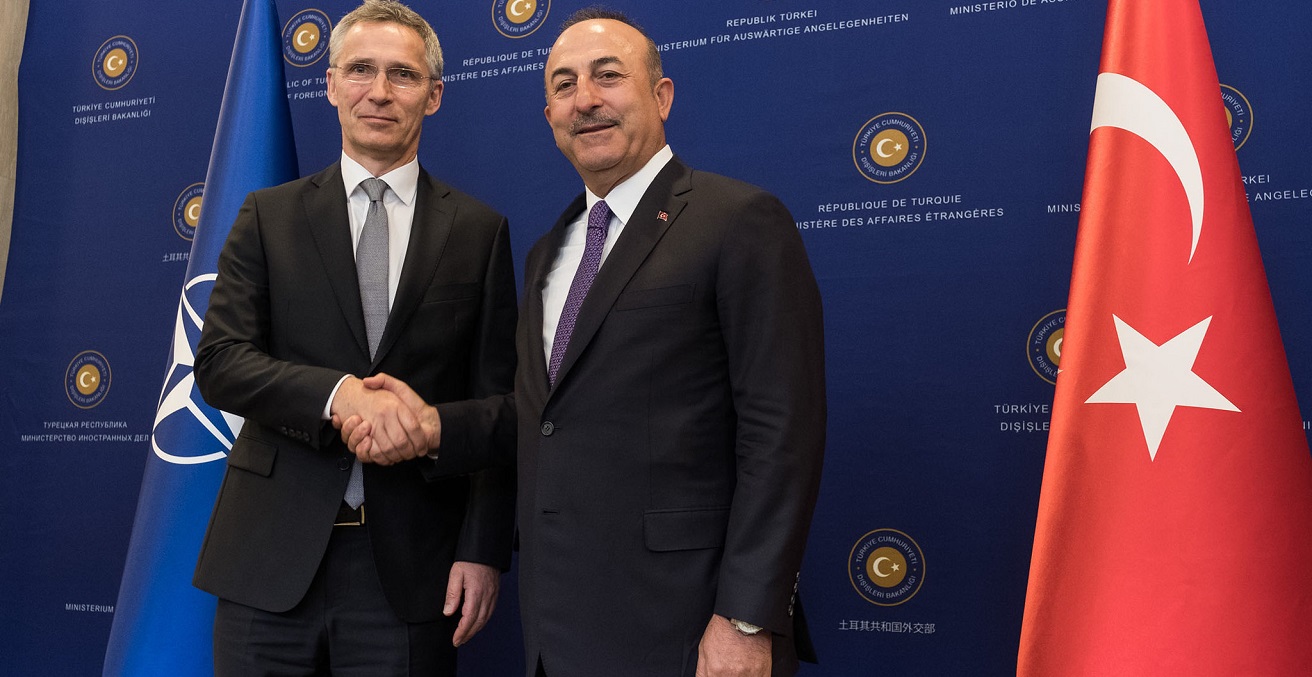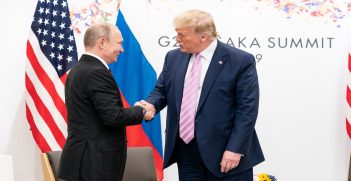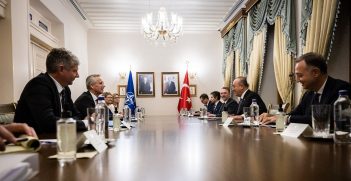Understanding Turkiye’s Opposition to Sweden and Finland’s NATO Membership

Turkiye’s voiced strong opposition to Swedish and Finnish bids to join NATO. Its goal was to call more attention to Turkiye’s legitimate security concerns and remind members that it is a long-standing ally.
When Russia attacked Ukraine on 24 February 2022, one of the main founding principles of the international establishment was attacked: the territorial integrity of a sovereign state. Europe’s political response to this attack was more solid than expected, and the EU surprised the most with its fast and firm policies towards the aggression, including sanctions and open borders for migrants coming from the region. Finland and Sweden’s decision to join the NATO was another interesting step, since they had previously considered membership to the alliance as an “unnecessary provocation of Moscow.”
In May 2022, Sweden and Finland applied for membership to join NATO. Turkiye’s objection came swiftly. President Recep Tayyip Erdoğan said Turkiye did not have a positive opinion about their membership and Foreign Minister Mevlut Çavuşoğlu emphasised that “Sweden and Finland have to stop support for terrorists (including the PKK) and provide clear security guarantees and lift export bans on Turkiye before joining the alliance.” By the end of June 2022, foreign ministers of three countries signed a memorandum in which Turkiye’s security concerns were addressed, clearly stating that “Finland and Sweden will not provide support to YPG/PYD, and the organisation described as FETO in Turkiye.” Export bans on Turkiye were also addressed: “In future, defence exports from Finland and Sweden will be conducted in line with Alliance solidarity and in accordance with the letter and spirit of article 3 of the Washington Treaty.”
Additionally, Turkiye had deportation and extradition requests from these two countries, which became a problem in the follow-up of the memorandum. Sweden extradited a man who is accused of fraud. Both Finland and Sweden started the process of extradition of some of the people requested by Turkiye, but neither accepted the extradition of everyone on the list. As the memorandum foresaw, the three countries met under the Permanent Joint Mechanism in Vantaa, Finland at the end of August, and officials stated that the mechanism will continue at the expert level during the coming months.
In this process Turkiye demonstrated that as a NATO member, it has an expectation that allies pay particular attention to its legitimate security concerns. In this framework, Turkiye’s demands regarding the terrorist groups such as the Kurdistan Worker’s Party (PKK) and its close associate, the People’s Defence Units (YPG), and Fethullahist Terrorist Organisation (FETÖ) need to be addressed by the newcomers to the alliance. Thus, Turkiye’s opposition to the membership of Sweden and Finland to NATO should not be seen as a structural opposition, but rather as an alarm to increase awareness and cooperation against security threats that Turkiye considers vital for itself.
What about further motives?
In order to better understand Turkiye’s opposition one should carefully look at the recent developments in Turkish foreign policy for context.
One of the biggest debates over Turkish foreign policy has always been whether Turkiye’s foreign policy axis is shifting towards the East. Especially since Turkiye’s purchase of Russian S-400s and dismissal from the US F-35 project the emphasis on this shift has become more visible. Turkiye’s possible strategic partnership with Russia due to deeper cooperation in security field was an issue, but Turkiye’s strategic priorities did not coincide with Russian priorities, particularly toward Libya and Syria. And although Turkiye was not anti-Russian, it has had a pro-Ukrainian approach since the annexation of Crimea in 2014. When we look at Turkiye’s position on the Finnish and Swedish application to NATO then, we see that Turkiye highlighted its status as a NATO member rather than its close relations with Russia.
Another motivation here was to dissuade the US from fostering relations with the YPG and Democratic Union Party(PYD) in northern Syria. The US has been in close cooperation with these groups, which Turkiye considers the Syrian branch of the PKK and therefore a fundamental threat to its territorial integrity and security. In relations between Turkiye and the US, this has been one of the key problems. For instance, in 2017, President Erdoğan stated, “It is absolutely unacceptable to take the YPG-PYD into consideration as partners in the region,” and still Turkiye considers any connection with YPG/PYD as a direct aid to the PKK.
Turkiye’s opposition to Swedish and Finnish bids was also perceived as a part of a grand bargain. This would “involve lessened Western support for the PYD-PKK in exchange for Ankara easing up the pressure on the organization. Adding new weapons sales to Turkiye into the mix probably would seal the deal.” Also, as Han argued, through these bids, “Erdoğan is not addressing Helsinki or Stockholm” but “he is trying to give a message…. You have to make a broad bargain with me about Turkiye’s problems with the West.” Some other motivations are more related to domestic politics than foreign policy priorities. Involving the public in opposition against the “Finnish and Swedish bids, rather than opting for quiet diplomacy, Erdoğan hopes that the issue will help to consolidate his public support” as the elections approach. On the other hand, President Erdoğan’s may be seeking to “divert attention from the dire state of Turkiye’s economy.”
Conclusion
Although Turkiye has adopted a harsh rhetoric, especially in the last decade, against the “West,” not only the ruling elite but also the public see that NATO is important in keeping Turkiye safe in its region. The latest public opinion polls conducted by Istanbul Economics Research and EDAM demonstrate that the percentage of the people who think NATO is necessary for Turkiye’s security has gone up by more than 20 points, and reaching 51.3 percent in October 2021. The same public opinion polls show that support for security cooperation with Russia and membership to Shanghai Cooperation Organization instead of NATO went down considerably.
All these arguments in relation to Turkiye’s motivation for opposing Swedish and Finnish NATO membership come down to attempts to normalise Turkiye’s relations with its traditional allies and going back to traditional foreign policy roles in its region – conducting a balancing act while having close links to Western partners. The geopolitical and geoeconomic realities force Turkiye to be more flexible, while systemic international pressures continue to push for adjustment in Turkish foreign policy. Lately, we have seen Turkiye taking steps in normalising relations with Israel, conducting a balancing policy in the Black Sea region in the talks for opening the wheat corridor, and sending a delegation to the US for ensuring the supply of F16s to modernise the ones at hand. Hence, Turkiye’s opposition to Swedish and Finnish NATO bids not only aims to call for more attention to its legitimate security concerns but also to remind the international community that it is a long-standing ally in the organisation.
Dr Çiğdem Üstün is Associate Professor of International Relations Department, Nişantaşı University and Secretary General at Center for Economics and Foreign Policy Research (EDAM), İstanbul. Twitter: @cigdemustun
This article is published under a Creative Commons License and may be republished with attribution.





